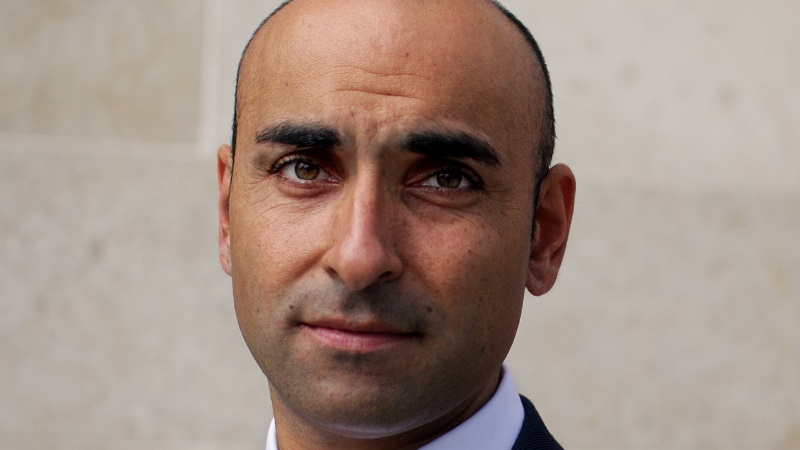The UK is on track to be one of the worst hit European economies in 2020, according to Q3 GDP figures released a day after the country became the first in the region to surpass 50,000 deaths from Covid-19.
While the UK logged record GDP growth of 15.5% over the quarter, according to the Office for National Statistics, it is still on track to end the year 11% smaller than it was at the start, according to Bank of England estimates. Additionally, a second national lockdown for England beginning in October means the coronavirus recovery is more likely to be W shaped than V shaped.
“If you shut down an economy and then open it up, it’s not hugely surprising that you get a huge seesaw effect in quarterly GDP numbers,” said AJ Bell financial analyst Laith Khalaf (pictured) about the record quarterly GDP growth.
“Things also look like they will get worse before they get better, with rising unemployment on the cards over the course of the winter,” Khalaf said. “January is a prime month for insolvencies, as troubled businesses throw in the towel after one last hurrah over the Christmas period. Failed Brexit negotiations could also give the economy an unhelpful shove in the wrong direction.”
Quilter Investors portfolio manager Paul Craig pointed out the second lockdown is “much softer” but was unlikely to lead to as much pent-up demand as before. “We are also unlikely to see measures such as Eat Out to Help Out again which clearly had a positive effect on the economy, but potentially less so on the public health of the nation.”
Shrinking UK economy set to suffer twice as bad as peers
Kingswood CIO Rupert Thompson noted GDP forecasts for 2020 signal the UK will face double the economic decline estimated for countries such as the US, Germany, France and Italy. Only Spain, which has also suffered a significant number of Covid-19 cases, has fared as badly.
On Wednesday, the UK became the first European country to surpass 50,000 coronavirus deaths, logging 50,365, according to government figures. The Spanish death toll is 40,105.
With vaccine developments announced this week, JP Morgan Asset Management global market strategist Hugh Gimber said the UK could be in line for a strong rebound given its poor economic performance to date.
“It is clear that the UK’s economy has lagged many other regions around the world over the summer, which creates the potential for a vaccine to have a larger economic impact in the UK if it helps to accelerate the return to more normal levels of activity,” Gimber said.
UK’s bumpy economy could be a ‘harbinger’ of what’s to come with Brexit
But unlike Spain, the UK faces greater disruption if there is a disorderly end to the Brexit transition period.
Gam Investments investment director Charles Hepworth said the UK’s bumpy recovery from the coronavirus could be “harbinger” of what is to come if the UK’s divorce from the European Union is messy. “It is perhaps no surprise with the UK underperforming almost all other regions that investors continue to shun and avoid UK risk assets.”
Quilter Investors portfolio manager Paul Craig suggested Brexit could even have logistical implications for the vaccine. “The recent vaccine announcement could prove the ray of light for the economy going forward, assuming Brexit doesn’t stand between us and the medicine, which is likely to be produced in Europe.”
Covid vaccine could be good for the economy but bad news for markets
Additionally, the vaccine could lead to unwelcome news for markets, according to Khalaf.
“A vaccine provides some much needed hope for the economy in 2021. But in the topsy turvy world of ultra-stimulative monetary and fiscal policy, good news can sometimes be bad news, because economic progress is offset by expectations that the props currently holding up the economy will gradually be kicked away.”
In 2013, markets threw a “taper tantrum” when the US Federal Reserve declared it would start to wind down its quantitative easing programme on the back of an improving economy. US treasury yields almost doubled and borrowing costs spiked.
“If a vaccine can deliver us from coronavirus in 2021, we may once again witness that strange dance taking place between economic growth and stimulus withdrawal,” Khalaf said.
But Axa Investment Managers head of macro research David Page sees more stimulus on the horizon, noting the Bank of England GDP projections are materially higher than consensus. The central bank predicts growth of 7.25% next year and 6.25% in 2022. But consensus estimates sit at 5.5% and 3% respectively, according to Bloomberg.
“Accordingly, we do not expect the latest £150bn round of QE enacted last week to be the last monetary stimulus for the UK economy, also pencilling in a further extension of QE (£75bn) in Q2 next year,” Page said.
Axa IM did not expect the Bank of England to experiment with negative rates, given the UK economy should be showing more convincing signs of recovery by the middle of 2021, but the asset manager does expect a “material” fiscal stimulus package to be announced in the chancellor’s budget next year.
See also: BoE pumps extra £150bn into economy as UK enters second lockdown







